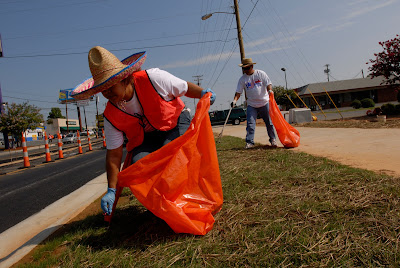Watch the full episode. See more Black in Latin America.
Harvard scholar Henry Louis Gates, Jr. explores race in Latin America in a new four-part series beginning tonight on PBS.
Gates notes that the vast majority of the 11.2 million Africans brought to the New World were taken to the Caribbean and Latin American. And they were kept as slaves far longer than the slaves brought to the United States. Only 450,000 came to the United States, he says in a Q&A posted on the PBS website.
“That’s amazing. All the rest went south of Miami as it were. Brazil got almost 5 million Africans. In part, this reflects our ignorance as Americans who don’t know that much about the rest of the world. But also, it is in part the responsibility of the countries in South America themselves — each of which underwent a period of whitening.”
In the series, Gates explores their stories and legacy of colonialism and slavery through Brazil, Cuba, the Dominican Republic, Haiti, Mexico and Peru.
 Here in North Carolina, we've seen this first hand. A large number of the Mexican population in the Carolinas is of African descent as was documented in a 2008 exhibit by the Afro-American Cultural Center in Charlotte.
Here in North Carolina, we've seen this first hand. A large number of the Mexican population in the Carolinas is of African descent as was documented in a 2008 exhibit by the Afro-American Cultural Center in Charlotte.The exhibit highlighted African descendants in Mexico and how some have migrated to the South, particularly to Winston Salem.
“I'm a Blaxican," Magdaleno Salinas, a native of Guerrero now living in Winston-Salem, said in an exhibit documentary.
If you're wondering where you recognize Gates. He's the Harvard professor who helped spark a national conversation on race relations and law enforcement after his 2009 arrest at his Massachusetts home by a Cambridge police officer who was responding to a call about a possible break-in. President Obama later intervened and said the police “acted stupidly” in arresting Gates. He later extended an invitation to both Gates and the officer to share a beer with him at the White House.
The PBS series airs tonight at 8 p.m.
Video: PBS
Photo: The photography of Romualdo Garcia was featured in the 2008 exhibit at the Afro-American Cultural Center. PHOTO COURTESY AFRO-AMERICAN CULTURAL CENTER















